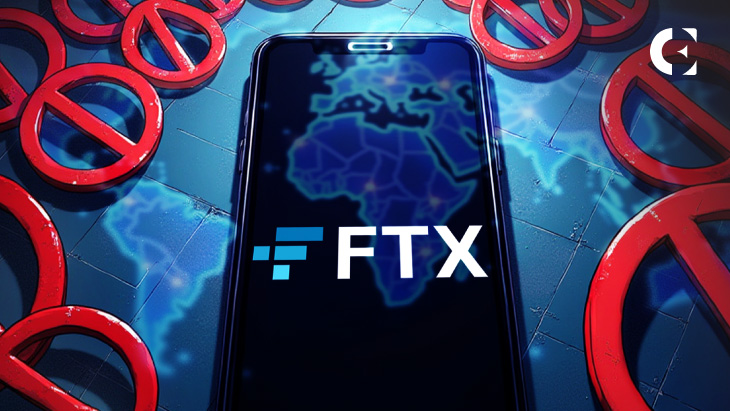- Chinese users among other listed nations could see their FTX claims tied up longer or even wiped out.
- The FTX Recovery Trust is seeking legal opinion to facilitate claim distributions.
- FTX held the majority of its assets in Solana, Bitcoin, and Ethereum for global users.
FTX Recovery Trust has filed a motion in Delaware’s bankruptcy court to establish a process for handling claims from 49 countries where cryptocurrency trading is banned or illegal. The FTX Recovery Trust will consider the claims from the said nations as disputed claims.
Out of the 49 countries listed by FTX Recovery Trust, creditors from China accounted for 82% of the disputed claims, which is estimated at 5% of the total allowed claims. If these disputed claims are denied, the forfeited amount will impact the final distribution pool.
The FTX Recovery Trust has an uphill challenge to navigate through the 49 local jurisdictions to assist the creditors process their claims.
Related: Shaquille O’Neal Agrees to a $1.8 Million Settlement in FTX Class-Action Lawsuit
Legal Solution to the FTX Payout Dilemma
According to X user Vida (@Vida_BWE), FTX Recovery Trust should allow FTX creditors from the listed countries to sell their claims to other foreign entities. Furthermore, some of the FTX creditors from the listed countries have residency rights in other jurisdictions where cryptocurrency trading is legal.
Notably, FTX creditors who may opt to sell their claims will likely sell at a discount to obtain instant liquidity. Some of the platforms where FTX creditors from the impacted nations can sell their claims include Xclaim, FTXCreditor, and FRNT.
Another user @zhetengji, who claims to have been made bankrupt by the FTX implosion, pointed out the FTX Recovery Trust should consider facilitating settlement through wire transfers using fiat currencies, especially the U.S. dollar.
“The claims process uses USD for settlement. Although foreign exchange controls limit the amount of USD that mainland Chinese residents can receive annually, they are allowed to hold USD overseas. So why isn’t wire transfer settlement supported?” Will noted.
Bigger Picture
Most importantly, while China has restricted cryptocurrency trading, investors are not barred from holding crypto assets. This legal nuance could help the FTX Recovery Trust to make use of the various local crypto regulations to ensure that creditors receive their funds.
The FTX implosion has weighed down on the wider cryptocurrency market, with Solana (SOL) bearing a heavy burden. According to Dropstab, the FTX Recovery Trust currently has a balance of about $12 billion, with SOL accounting for about $8.47 billion.
Related: FTX Claims 3AC’s $1.53 Billion Bid Is a ‘Baseless’ Attempt to Dump Risk
The unfair distribution process will shatter crypto investors’ trust in foreign exchanges. Moreover, investors were allowed to register and deposit their funds in FTX but are now facing uncertainty over funds recovery.
Disclaimer: The information presented in this article is for informational and educational purposes only. The article does not constitute financial advice or advice of any kind. Coin Edition is not responsible for any losses incurred as a result of the utilization of content, products, or services mentioned. Readers are advised to exercise caution before taking any action related to the company.







